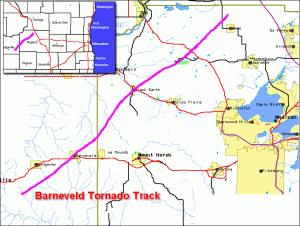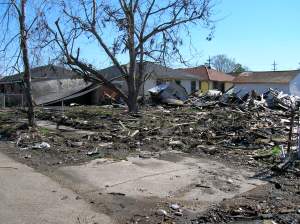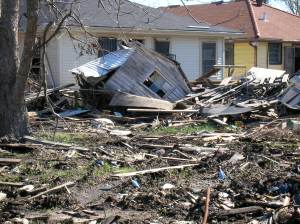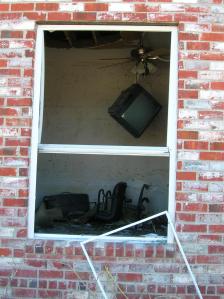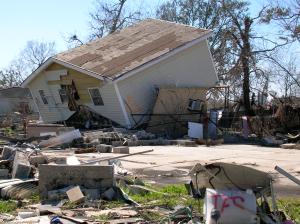Posts Tagged mental health
Huricanes, Snow Storms and More, oh My….
Posted by annbruck in Self Practice on November 11, 2013
The tornado that people still talk about…it was 1984 and it ripped through south central Wisconsin. Very little warning and a whole lot of destruction. It tore through homes and villages. The path along the trees still carries a hint of its path on the outskirts of town leading to the house I grew up in.
Residents of New Orleans and the surrounding gulf had a few days warning. Most left town but many did stay behind. They sat on their rooftops for days as rescue help was needed from Hurricane Katrina. That hurricane of 2005 certainly left her mark leaving homes and business leveled to the ground, standing water for days. Just five months later I went to volunteer in the Lower Ninth Ward, St.Bernard Parish.
Traveling between New England and the Midwest is extremely difficult between November and March. Almost every time I get stuck in the airport on either end…
Sometimes we have just a few days, hours or minutes to prepare for mother nature’s next big surprise. The typhoon that hit the Philippines over the weekend was the inspiration for today’s post.
The following is taken from the CDC
Prevent illness after a disaster has hit-
- Clean up, disinfect, and practice good hygiene to avoid illness from bacteria, viruses, mold, and mildew.
- Get medical care if you are injured, sick, or having trouble coping with stress.
- To prevent carbon monoxide poisoning, only use generators, pressure washers, grills, camp stoves, or other gasoline, propane, natural gas, or charcoal-burning devices outside and away from open windows, doors, and air vents.
- Stay cool and drink plenty of fluids to prevent heat-related illness.
Keep food and drinking water safe-
- Food may not be safe to eat during and after an emergency. Water may not be safe for cooking.
- Water may not be safe to drink, clean with, or bathe in after an emergency, such as a hurricane or flood. During and after a disaster, water can become contaminated with microorganisms (for example, bacteria), sewage, agricultural or industrial waste, chemicals, and other substances that can cause illness or death.
- Listen to and follow public announcements. Local authorities will tell you if water is safe to drink or to use for cooking or bathing. Follow local instructions to use bottled water or to boil or disinfect water for cooking, cleaning, or bathing.
Protect mental health-
- The days and weeks after an emergency are going to be rough. Some sleeplessness, anxiety, anger, hyperactivity, mild depression, or lethargy are normal and may go away with time. If you feel any of these symptoms acutely, seek counseling. Your state, local, tribal health departments will help you find local resources, including hospitals or health care providers that you may need.
- Seek medical care if you are injured, feel sick, or have acute stress and anxiety.
- Keep as many elements of your normal routine incorporated into the disaster plans as possible, including activities to calm children’s fears.
- Be aware that you may have fewer resources to attend to your day-to-day conflicts, so it is best to resolve what you can ahead of time.
- Turn to family, friends, and important social or religious contacts to set up support networks to deal with the potential stressors.
- Let your child know that it is okay to feel upset when something bad or scary happens. Encourage your child to express feelings and thoughts, without making judgments.
Are you prepared? More information on natural disasters is available at the CDC.
be well
Since 1949…
Posted by annbruck in Uncategorized on May 8, 2013
Catherine Zeta Jones, Mel Gibson, Brooke Shields, John Nash, Carrie Fisher, Herschel Walker, Paula Deen, and Howard Hughes just to name a few, have all dealt with some sort of mental health disorder.
Mental health includes our emotional, psychological, and social well-being. It affects how we think, feel and act as we cope with life. It also helps determine how we handle stress, relate to others, and make choices. Mental health is important at every stage of life, from childhood and adolescence through adulthood.
May has been observed as Mental Health Awareness Month since 1949. It is often a time when the country draws attention to mental health issues that affect as many as one in four Americans.
Just a few of the mental disorders include:
- antianxiety, including ptsd, ocd, and phobias
- bipolar
- depression
- schizophrenia
Unfortunately with the stigma associated with mental health, people are ashamed or embarrassed to talk about their own experience. Many times this keeps them from seeking the appropriate help needed. There are many causes of mental health disorders. Genes and family history play a role. Life experiences such as stress or abuse. And biological factors such as drug use, exposure to toxins, or having a serious medical condition such as cancer can also cause mental health disorders.
The great news is that help does exist. As society becomes more educated, that wall which separates us is beginning to crumble.
For more information on mental health, check out the National Institute of Mental Health- http://www.nimh.nih.gov/index.shtml
be well-
